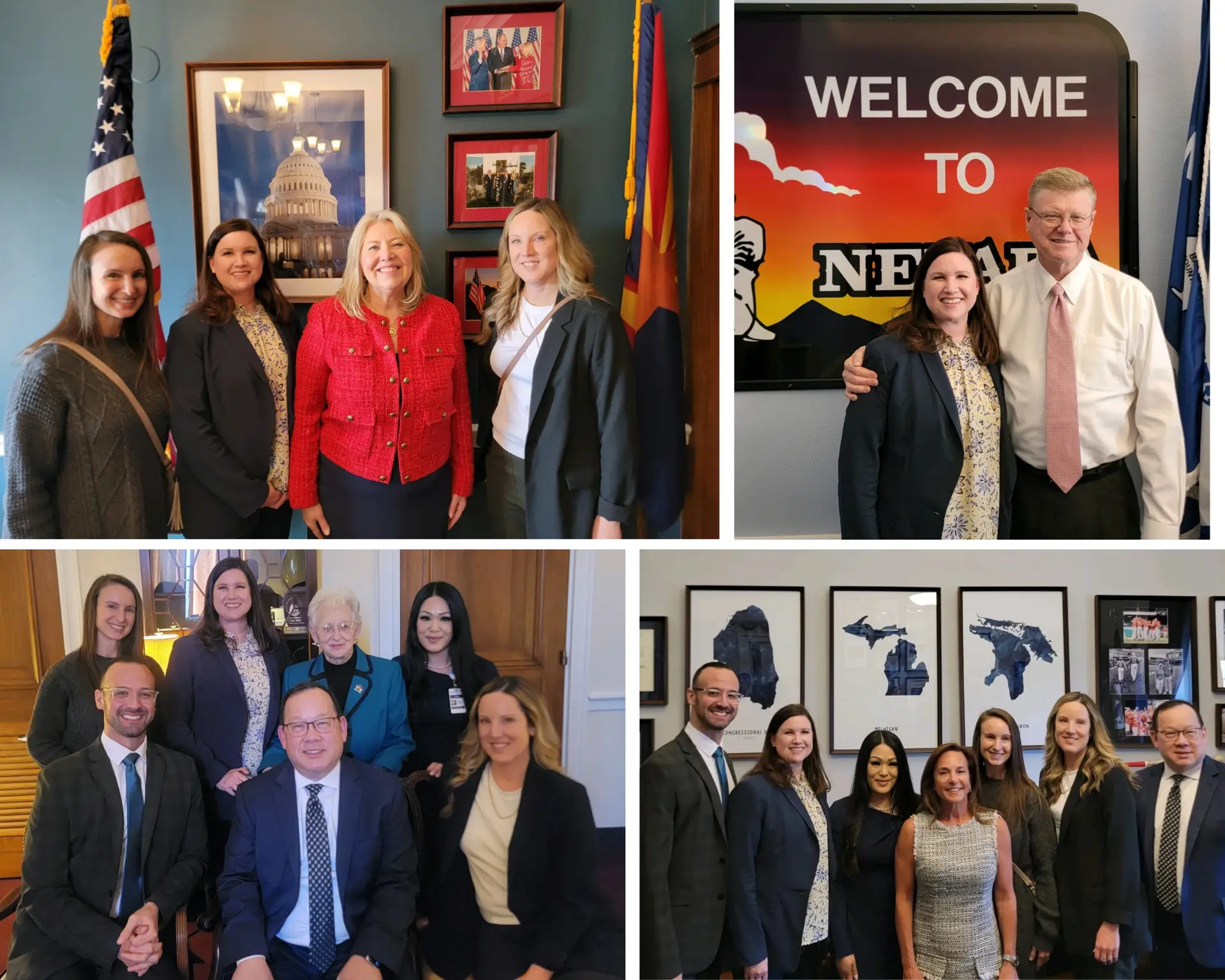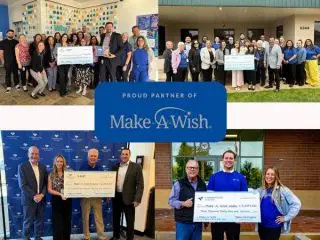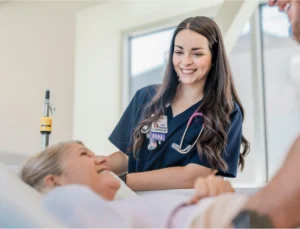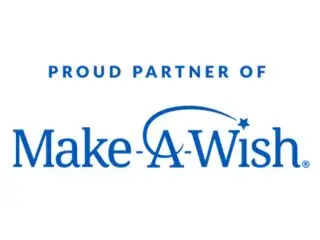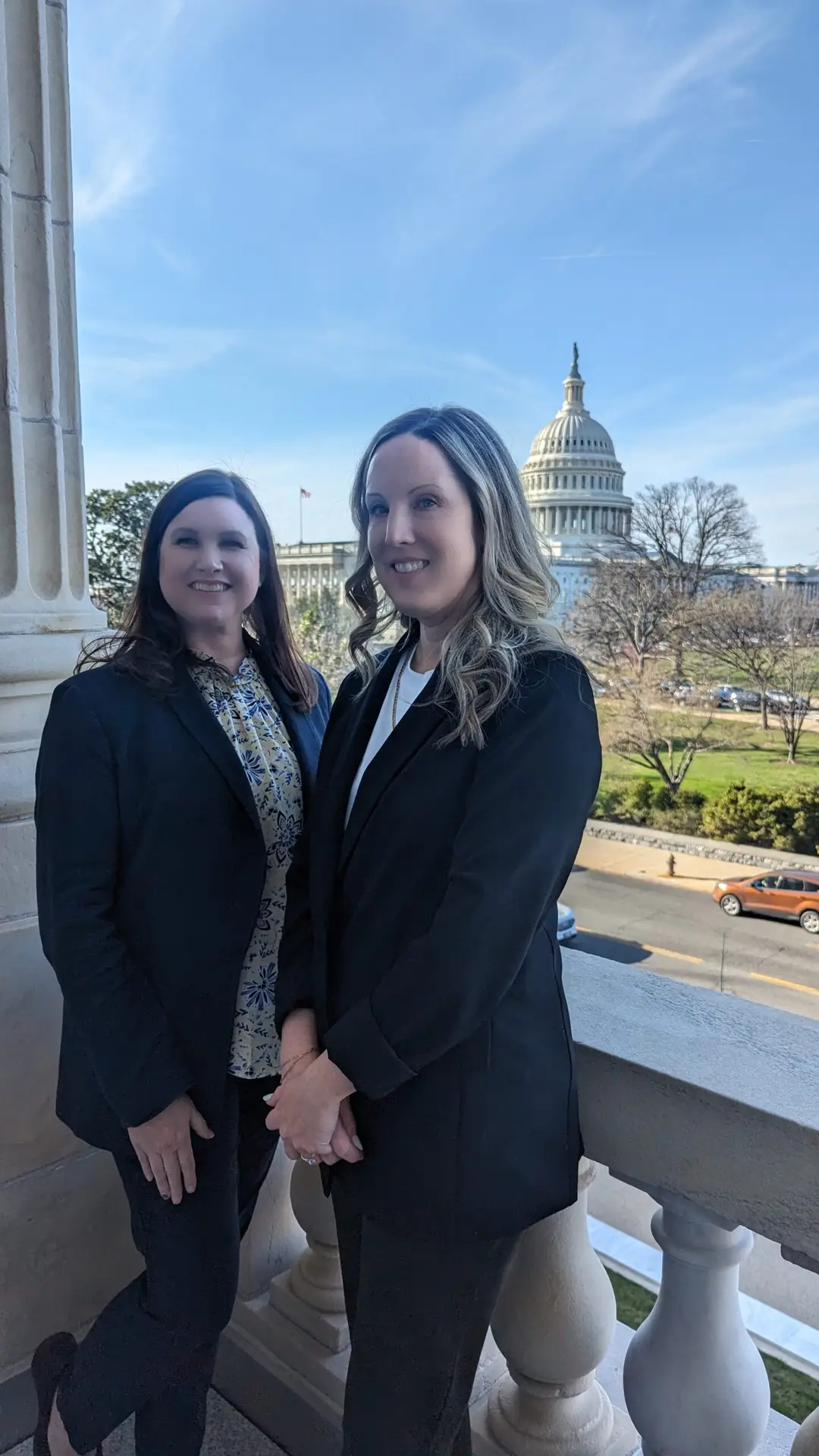 Melodie Osborn has been Chief Nurse Executive for over two years at Renown Health in Reno, Nevada, a not-for profit health system including three acute care hospitals and the region’s only Level II Trauma Center, serving one million people in a 100,000 square mile radius. Last March, as an integral part of the success placing Carrington College nursing graduates into this impressive hospital system, Melodie was invited to attend “Hill Day” on Capitol Hill in Washington, DC with members of Carrington College’s nursing programs. It was an opportunity for her, a representative of the private sector, to see the educators’ point of view on what government representatives are doing to support the growth in career educational institutions – which cannot keep pace with the shortage of qualified nurses in the field. The day was sponsored by CECU (Career Education College and Universities), a national association representing the proprietary sector of higher education. We asked her to tell us what she learned.
Melodie Osborn has been Chief Nurse Executive for over two years at Renown Health in Reno, Nevada, a not-for profit health system including three acute care hospitals and the region’s only Level II Trauma Center, serving one million people in a 100,000 square mile radius. Last March, as an integral part of the success placing Carrington College nursing graduates into this impressive hospital system, Melodie was invited to attend “Hill Day” on Capitol Hill in Washington, DC with members of Carrington College’s nursing programs. It was an opportunity for her, a representative of the private sector, to see the educators’ point of view on what government representatives are doing to support the growth in career educational institutions – which cannot keep pace with the shortage of qualified nurses in the field. The day was sponsored by CECU (Career Education College and Universities), a national association representing the proprietary sector of higher education. We asked her to tell us what she learned.
What was your overall experience on the “2024 Hill Day” event?
It was really a phenomenal experience. What I found most interesting – in every congressional office I visited – was how much keen interest there is in healthcare. But often they aren’t knowledgeable enough to know what questions to ask! As I talked about it, I found people were surprised by my perspective. It provided me with a unique opportunity to share the workforce challenges from the industry experience to our representatives and to observe their commitment to providing alternative learning opportunities for all students, advancing educational standards for all schools, and advocating for policies and access to federal funding for students.
What were some key takeaways?
The best key takeaway for me was how much I realized Carrington College advocates for their students.
How did attending Hill Day align with Renown Health’s goals and priorities, particularly in the context of a nursing career and healthcare education?
It aligned very well. We’re continuing to have conversations to deepen relationships with educational institutions and identify how we can step up and follow a “grow-your-own” strategy for clinical disciplines such as mammography and echo technicians. While we’ve worked well together to develop new nursing and physician pipeline, we also need to focus our efforts on developing new allied health programs to meet the needs of our health system and the community. I realized we have an academic partner in Carrington College not bound by red tape to organize programs more quickly – and to meet our needs for the future.
From your perspective, what do you see as the opportunities for the relationship between educational institutions like Carrington College and workplaces like Renown Health?
There are several opportunities that stand out to me.
The opportunities are:
- As a private institution, there is a tremendous opportunity to innovate and develop new programs that prepare students for the evolving demands of the healthcare industry
- As a private institution, there is more opportunity to build strategic partnerships with healthcare organizations and develop new learning experiences and career opportunities for students.
How can institutions like Carrington College leverage these opportunities?
When you look at the past, it has been a transactional relationship. We need, they supply. I think to solve the problem of greater demand and develop the future of healthcare we can’t do it in silos or alone; we must do this together. We must take the time to create something new and different, no idea is off the table. For example, we may need training for a specific allied health discipline. First, Carrington College can develop the allied health training; second, we work together to find the students and develop an apprenticeship; and lastly, we present a new model at the next Hill Day. We prepare and present to them this is what we want to try – and we need funding to support the development and growth of these academic-practice partnerships. It’s clear to me what we have to solve is best done by us working together to come up with the solutions.
Just focusing on the field of nursing, how would you like to see the role of nursing education evolving? (for example, you mentioned the idea of introducing night shifts in clinicals. Anything else?)
As we look to the future of nursing, it is crucial that nursing education aligns and evolves to meet the growing and changing demands of the healthcare landscape. We need to maximize the clinical opportunities on the night shift and emphasize interdisciplinary learning and education. By training alongside other healthcare professionals, nursing students can develop a deeper understanding of team-based care, enhancing their ability to collaborate effectively in diverse healthcare settings.
Do you think vocational colleges are getting more of a spotlight these days? Was there any discussion of that? Were there any new “terms” you heard to describe career-focused institutions?
I do see things are changing. There is real potential here. We have met with high schools and had some conversations; young adults want to continue education but not in a 4-year university. We need to take the time to help them understand the different career paths open to them in nursing, allied health fields and provide training to meet them where they’re at.
Looks like a bright future for this relationship and a lot of work ahead! Thank you for your time and congratulations on your success.
Thank you. Carrington College has been a great partner, and we look forward to our continued work together.
